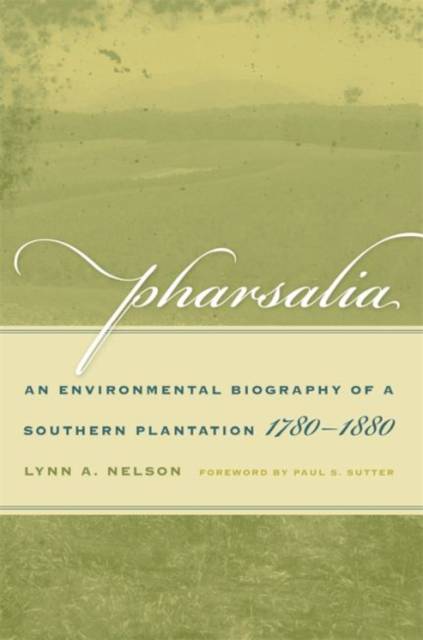
- Retrait gratuit dans votre magasin Club
- 7.000.000 titres dans notre catalogue
- Payer en toute sécurité
- Toujours un magasin près de chez vous
- Retrait gratuit dans votre magasin Club
- 7.000.000 titres dans notre catalogue
- Payer en toute sécurité
- Toujours un magasin près de chez vous
53,45 €
+ 106 points
Description
Pharsalia, a plantation located in piedmont Virginia at the foot of the Blue Ridge Mountains, is one of the best-documented sites of its kind. Drawing on the exceptionally rich trove of papers left behind by the Massie family, Pharsalia's owners, this case study demonstrates how white southern planters paradoxically relied on capitalistic methods even as they pursued an ideal of agrarian independence. Lynn A. Nelson also shows how the contradictions between these ends and means would later manifest themselves in the southern conservation movement.
Nelson follows the fortunes of Pharsalia's owners, telling how Virginia's traditional extensive agriculture contributed to the soil's erosion and exhaustion. Subsequent attempts to balance independence and sustainability through a complex system of crop rotation and resource recycling ultimately gave way to an intensive, slave-based form of agricultural capitalism. Pharsalia could not support the Massies' aristocratic ambitions, and it was eventually parceled up and sold off by family members. The farm's story embodies several fundamentals of modern U.S. environmental thought. Southerners' nineteenth-century quest for financial and ecological independence provided the background for conservationists' attempts to save family farming. At the same time, farmers' failure to achieve independence while maximizing profits and crop yields drove them to seek government aid and regulation. These became some of the hallmarks of conservation efforts in the New Deal and beyond.Spécifications
Parties prenantes
- Auteur(s) :
- Editeur:
Contenu
- Nombre de pages :
- 320
- Langue:
- Anglais
- Collection :
Caractéristiques
- EAN:
- 9780820334165
- Date de parution :
- 01-12-09
- Format:
- Livre broché
- Format numérique:
- Trade paperback (VS)
- Dimensions :
- 152 mm x 229 mm
- Poids :
- 480 g







